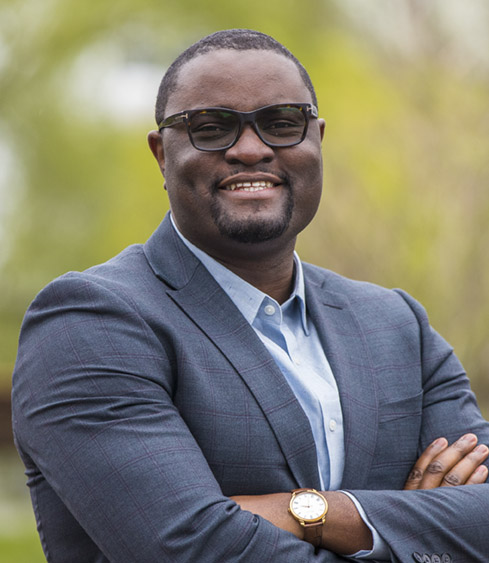
Dr. Jude Mary Cénat
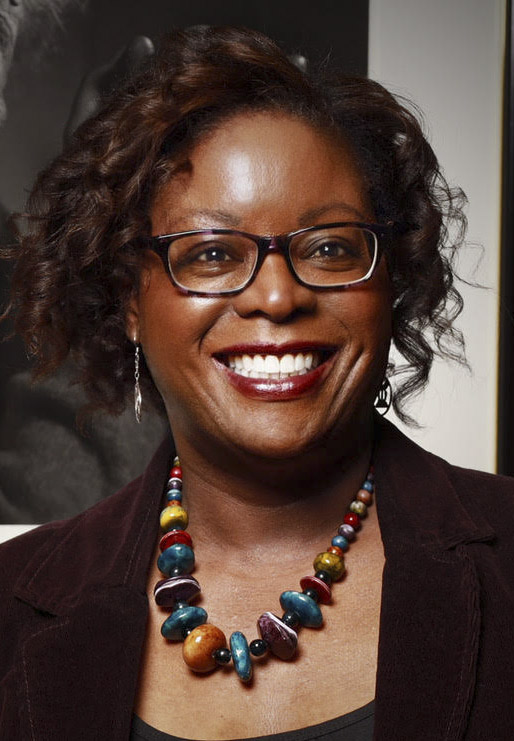
Dr. Helen Ofosu
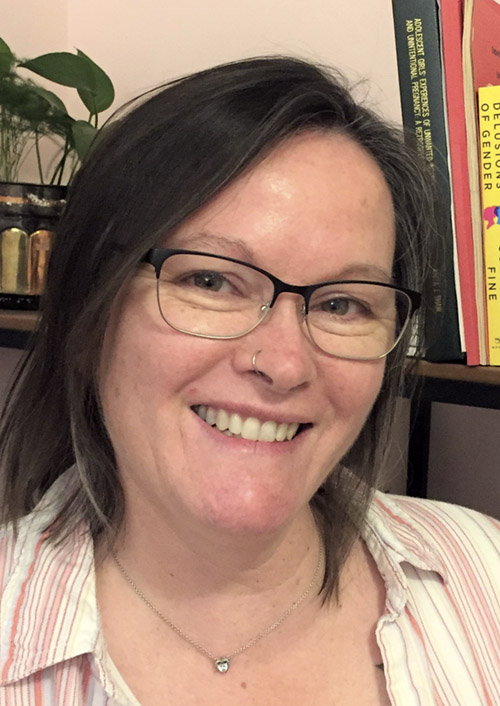
Anita Shaw
Dr. Jude Mary Cénat, Dr. Helen Ofosu, Anita Shaw, Kafui Sawyer, Dr. Erin Beettam, and Dr. Monnica Williams, Black Psychology Section
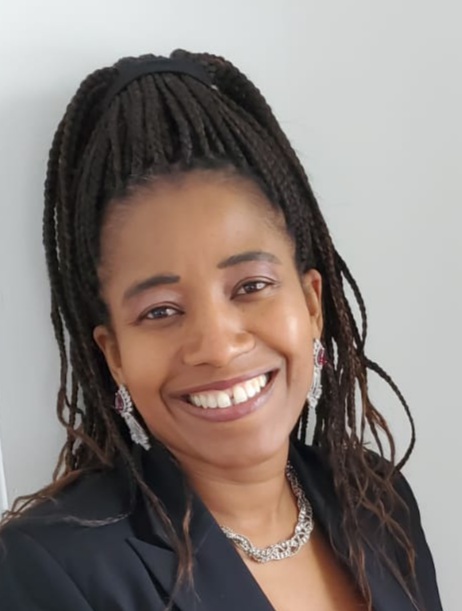
Kafui Sawyer

Dr. Erin Beettam
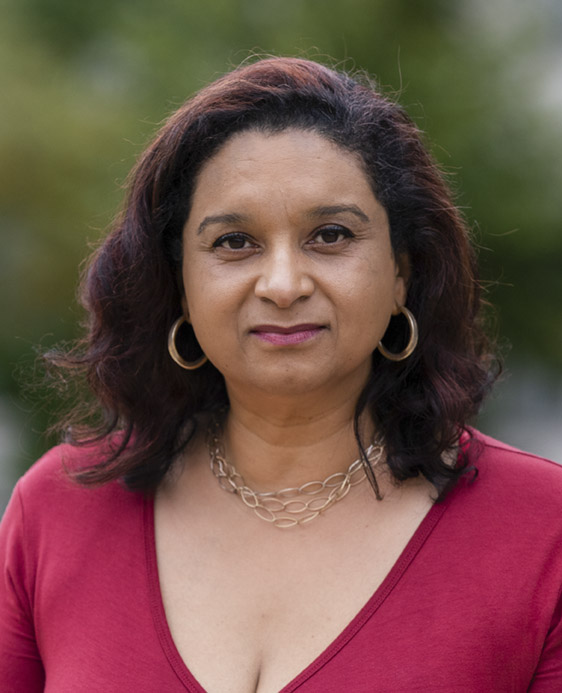
Dr. Monnica Williams
One of the two new sections at the CPA is the Black Psychology Section, which looks to increase the presence of Black professionals in psychology and to increase access to mental health services for the Black community.
“What field can be more anti-racist than psychology? We are here to promote human beings, human development, and human well-being! There is no field that can address racial issues better than psychology.”
Dr. Jude Mary Cénat is passionate about making psychology anti-racist, and inviting his colleagues in the mental health field to join the movement. Dr. Cénat is an Associate Professor in the school of Psychology at the University of Ottawa, and the director of the Vulnerability, Trauma, Resilience and Culture Research Laboratory (V-TRaC Lab).
Canada’s racialized populations experience unique traumas and mental health concerns. Black Canadians are no exception. In addition to the things that affect everyone – the pandemic, work stress, family issues – they must contend with societal racism and workplace hostility/microaggressions that remain a fact of everyday life in this country.
“We cannot continue to perpetrate and encourage racial discrimination. We cannot continue to be ‘colourblind.’ People who experience high levels of racial discrimination are thirty-six times more likely to present with severe symptoms of depression.”
The effort to make sure psychology leads the way it can, and should, in addressing racial issues is one of the principals that led five CPA members and affiliates to become the driving force behind the creation of a new Black Psychology Section at the CPA. Kafui Sawyer, Anita Shaw, Dr. Helen Ofosu, Dr. Monnica Williams, and Dr. Erin Beettam see the mission of the section as promoting and advancing practitioners, educators, students, and scientists of psychology who identify as Black and who are concerned about psychology-related issues that impact Black people. Each of them has seen that impact, some personally, in their own careers.
Dr. Helen Ofosu is an Industrial/Organizational psychologist, Executive Coach, and HR Consultant in Ottawa. She works with organizations including government departments, to improve organizational culture and inclusion. Over the past two years, during the pandemic, she has noticed a lot of racialized employees choosing to find work within more inclusive organizations, as they are realizing that working from home, they are no longer subjected to the everyday indignities they experienced in a physical workplace. “These things have been happening for years, but now people are removed from that environment, and they have the peace of mind that comes from doing their work without worrying about microaggressions, or getting the side-eye, or being excluded from lunches, coffees, and conversations. When all of that is gone, people feel so much more relaxed because they can just focus on doing their work.
I think the real trigger was in the summer of 2021, when a lot of organizations were planning their return to the physical workplace. It was only when people started to realize ‘oh my goodness – I might have to go back to the office’ that they started thinking ‘wait a second – I don’t think I can go back to the office. I don’t want to go back to the office! I don’t want to go back to the way things were.’
During all that reconsideration, a lot of people figured it was a smart time for them to find a different place to work, where there’s more representation, more inclusion, more diversity, and just a better workplace culture. From what I’ve seen, people are reflecting on a lot of things during the pandemic. So, they’re looking for a way to find employment where they can just be themselves, and focus on doing their work instead of focusing on self-protection from all these emotional assaults.”
Anita Shaw is a PhD student at the University of Northern BC in Prince George. She says,
“While I’ve been doing my PhD, I’ve also been really thinking about decolonization. Not only decolonizing my own thinking, but about how psychology has contributed to colonization, and how it could contribute to decolonization. I’ve been working with a mentor who is an Indigenous scholar, and we’ve developed a template for a course curriculum for decolonizing psychology.”
Kafui Sawyer is a psychotherapist, a trauma consultant for Health Canada, and the Clinical Director for Joy Health and Research Centre. She helps families through traumatic experiences, assists government employees who have suffered as a result of experiences (such as racism) in their workplace, and much more. Often clients will ask to work with her specifically, because she is Black and shares a lived experience with those clients. She says that the most rewarding thing for her is working with complex cases like personality disorders, as clients transition from a disordered personality to a more grounded place.
Ms. Sawyer notes that the Section founders’ hope is “to create a space where people with similar values and beliefs can make things work. We hope it brings like-minded people together so we can have a home in the CPA.” For the founders, the Section is an opportunity to create a space where people can bring common their interests and experiences together in a way “that empower us to be better.”
The Black Psychology Section is an important space for allies of Black members, students, and affiliates as well. Dr. Erin Beettam identifies herself as a Child & Adolescent Clinical Psychologist. While she trained in School Psychology, her work has primarily been in hospitals, pediatric psychiatry, and the public mental health system. Erin specializes in treating adolescents and young adults in anxiety, depression, emerging personality disorders, and eating disorders. Presently she works in a school board and has a private practice. She notes her growing awareness “of the lack of available and effective services for people of colour, for Black communities, in the workplace, and in educational settings”. This awareness has led her to examine what she “can give and do to provide support in the changing landscape.”
Dr. Monnica Williams is a researcher at the University of Ottawa who has long been an advocate for inclusivity in research. For too long, people of colour have been excluded from research of all kinds, notably in a variety of psychological fields.
“So much of the research we see is exclusionary, and it not only perpetuates the problem but it’s also a symptom of the problem. Part of the issue is that we don’t have enough researchers of colour to do the research for people of colour.
I do a lot of research bringing these issues to light – how treatments might need to be adapted for people of colour, how therapists who are getting trained now can learn more about how to treat people with a more inclusive lens. Everybody needs to understand best practices when working with race, ethnicity, and across cultures.”
It is these best practices when working with race, ethnicity, and across cultures that Dr. Williams’ colleague at the University of Ottawa, Dr. Cénat, is promoting as well. He and his colleagues have created a course called ‘How To Provide Antiracist Mental Health Care’, approved for Continuing Education credits by the CPA. Dr. Cénat hopes that all mental health professionals, and Canadians by and large, become committed to anti-racism.
“As Ibram Kendi said, there is no ‘racist’ and ‘non-racist’. There is racism, and anti-racism. If you are just ‘non-racist’, you aren’t taking actions that can push back against racism. And you have to take action against racism because that is how we can create an anti-racist society.”
The Black Psychology Section, approved by the CPA Board in November 2021, is now accepting members. Once membership is established, the Section will propose its Terms of Reference to the CPA Board for approval and then go on to elect its Executive; all steps which should be completed in 2022. The Section’s purpose will include working with others to increase the presence of Black professionals in psychology and to increase access to mental health, wellness, organizational, and consultation services for the Black community; especially those who experience unique barriers to accessing appropriate mental health care and other psychological services (e.g., training, leadership, organizational interventions, basic and applied research, etc.). The Section may ultimately become a community space for CPA members, students and affiliates interested in these issues and, especially for Black students, educators, researchers and practicing psychologists. For more information about joining the Section, go to https://cpa.ca/sections/black-psychology/
